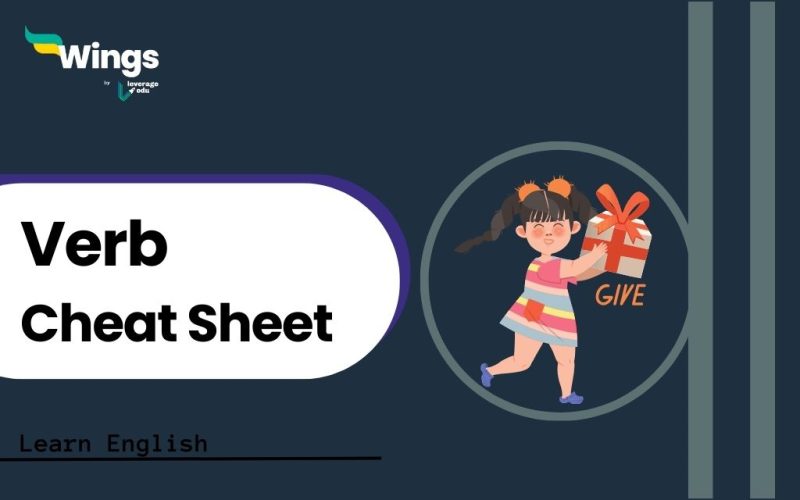Verbs are the workhorses of any sentence! They bring life and action to your writing, telling you what’s happening or what exists. Verbs are words that express an action (run, jump, eat), an occurrence (happen, exist), or a state of being (seem, appear). Continue reading this blog post to find all the information about the verb cheat sheet and how you can incorporate that into your writing in English.
This Blog Includes:
Learn English from scratch here!
Irregular Verb Cheat Sheet
Irregular verbs in English don’t follow the usual pattern of adding “-ed” to form the past tense and past participle. For example, the regular verb “walk” becomes “walked” (past tense) and had “walked” (past participle), but the irregular verb “eat” becomes “eaten” (past tense) and had “eaten” (past participle).
One must note that this type of verb is one of the hardest parts to study in the modern English language. It comes with no specific formula so English speakers have no choice but to memorise each word along with the special verb forms.
To help you, we have compiled a quick cheat sheet on irregular verbs. Do check it out.
Also Read: All about Regular and Irregular Verbs
Action Verb Cheat Sheet
Action verbs are the workhorses of a sentence. They describe what the subject of the sentence is doing. They create movement and bring your writing to life. Here are some key points about action verbs:
- They describe physical actions: This is the most straightforward type of action verb. Running, jumping, eating, and throwing are all examples.
- They describe mental actions: Action verbs can also represent what someone is thinking or feeling. Examples include considering, analysing, dreaming, and worrying.
Additionally, action verbs are known to enhance one’s writing. This is done in the following ways:
- Lively Sentences: Action verbs make your writing more engaging and interesting to read.
- Clarity: They clearly show what’s happening in your story or explanation.
- Strong Voice: Action verbs help you write with a strong and active voice.
To help you with the formation of action verbs, we have compiled this cheat sheet. Do check this out.
Also Read: Nouns vs Verbs: Difference You Must Know!
Subject Verb Agreement Cheat Sheet
Subject-verb agreement is a fundamental rule in English grammar that ensures your sentences sound correct and clear. It essentially means that the verb in your sentence needs to match the subject in number (singular or plural).
Here’s a breakdown of subject-verb agreement of all the rules:
- Singular Subject + Singular Verb: If your subject is singular, the verb needs to be singular as well. (Example: The cat sleeps soundly.)
- Plural Subject + Plural Verb: If your subject is plural, the verb needs to be plural as well. (Example: The cats sleep soundly.)
For more clarification, check out the PDF below which will help you with the formation of the sentences:
Also Read: Subject-Verb Agreement: 12 Rules & Examples
Check Out More Blogs on Learn English!
FAQs
We utilise verbs to describe states of being (how things are) and actions (what things do). Describe, eat, and rotate are a few examples of verbs.
A verb is called an action word that shows an action (sing), occurrence (develop), or state of being (exist).
This was all about the verb cheat sheet and related information. Hope you understand the concept and know how to proceed. You can also follow the Learn English page of Leverage Edu for more exciting and informative blogs related to grammar.


 One app for all your study abroad needs
One app for all your study abroad needs












 60,000+ students trusted us with their dreams. Take the first step today!
60,000+ students trusted us with their dreams. Take the first step today!